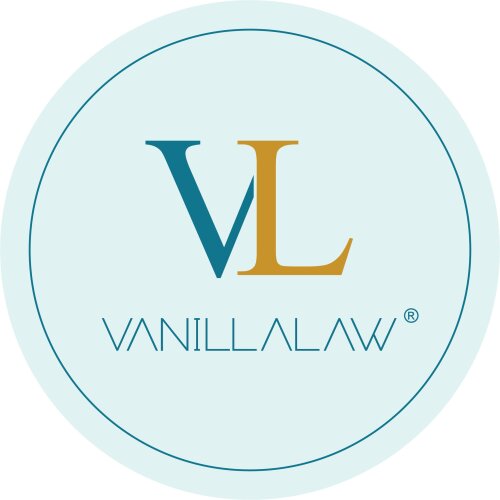Best Information Technology Lawyers in City Hall
Share your needs with us, get contacted by law firms.
Free. Takes 2 min.
List of the best lawyers in City Hall, Singapore
Singapore Information Technology Legal Articles
Browse our 1 legal article about Information Technology in Singapore written by expert lawyers.
- Personal Data Protection Act (PDPA): Introduction to PDPA
- In recent years, the Personal Data Protection Act 2012 (“PDPA”) of Singapore has been a trending topic for discussion, especially due to the trend of storing valuable personal data online. The PDPA is crucial as it protects the personal data for individuals while recognising the need for organisations to “collect,... Read more →
About Information Technology Law in City Hall, Singapore
The field of Information Technology (IT) Law in City Hall, Singapore is an evolving and complex area of legislation that encompasses a wide spectrum of IT-related issues including data protection, cybersecurity, intellectual property rights, e-commerce, and contracts involving software and hardware. This legal landscape has a key role in supporting Singapore's status as a global technology hub and its Smart Nation Initiative, which endeavors to harness digital technology to serve the nation's people and businesses.
Why You May Need a Lawyer
Given the intricate nature of IT law, individuals or enterprises might require the assistance of an IT lawyer for issues related to data breach incidents, crafting and reviewing IT contracts and licenses, managing intellectual property in software development, and ensuring compliance with local regulations around data handling and cybersecurity. Additionally, if you're engaged in e-commerce, a lawyer can guide you on issues relating to online business transactions and digital marketing dodging potential legal problems.
Local Laws Overview
A few pivotal laws govern IT matters in City Hall, Singapore. The Personal Data Protection Act (PDPA) outlines data protection law for safeguarding individuals' personal data against misuse. The Computer Misuse Act protects computer material against unauthorized access or unlawful modification. The Electronic Transactions Act covers all legal aspects of electronic signatures, records, and contracts. Intellectual Property Law addresses copyright and patenting issues tied to software and digital content. Lastly, the Cybersecurity Act entails measures to protect the nation’s critical information infrastructure against cyber threats.
Frequently Asked Questions
Is it illegal to leak company data?
Under the Personal Data Protection Act, unauthorized display, sharing, or leaking of company data can result in heavy fines, imprisonment, or both.
What legal protection is there against cyber attacks?
The Computer Misuse Act provides protection against unauthorized access, hacking, and malicious acts targeting computer material.
Can I patent my software in Singapore?
Yes, according to Singapore's Intellectual Property Law, if your software meets certain criteria of novelty and inventive step, it can be patented.
Do all businesses need to comply with PDPA?
Yes, all organizations, regardless of their size, must adhere to the PDPA when handling personal data in their possession.
Can digital contracts be legally binding?
Yes, under the Electronic Transactions Act, contracts formulated and signed electronically can have legal authority.
Additional Resources
The Infocomm Media Development Authority (IMDA) is a statutory board in the Singapore government responsible for developing its broadcasting, telecommunications, and digital media sectors, offering useful insight for IT professionals. The Personal Data Protection Commission (PDPC) is a governmental body that oversees the administration of the Personal Data Protection Act.
Next Steps
If you require legal assistance related to IT in City Hall, Singapore, consider consulting with a lawyer specialized in IT law, preferably one with experience in the specific area of your concern. Prepare a summary of your situation, any relevant documents, and a list of all the questions you might have beforehand to make the most of your consultation.
Lawzana helps you find the best lawyers and law firms in City Hall through a curated and pre-screened list of qualified legal professionals. Our platform offers rankings and detailed profiles of attorneys and law firms, allowing you to compare based on practice areas, including Information Technology, experience, and client feedback.
Each profile includes a description of the firm's areas of practice, client reviews, team members and partners, year of establishment, spoken languages, office locations, contact information, social media presence, and any published articles or resources. Most firms on our platform speak English and are experienced in both local and international legal matters.
Get a quote from top-rated law firms in City Hall, Singapore — quickly, securely, and without unnecessary hassle.
Disclaimer:
The information provided on this page is for general informational purposes only and does not constitute legal advice. While we strive to ensure the accuracy and relevance of the content, legal information may change over time, and interpretations of the law can vary. You should always consult with a qualified legal professional for advice specific to your situation.
We disclaim all liability for actions taken or not taken based on the content of this page. If you believe any information is incorrect or outdated, please contact us, and we will review and update it where appropriate.














